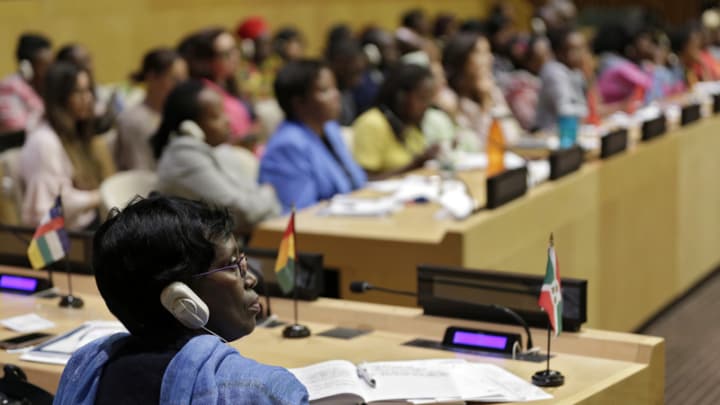Globally as well as in Africa, women’s leadership and political participation are restricted. Women make up half of the electorates, having the right to vote and hold office, yet women continue to be underrepresented as candidates for public office. Women are underrepresented as voters, as well as in leading positions, whether in elected office, the civil service, the private sector or academia. This occurs despite their proven abilities as leaders and agents of change, and their right to participate equally in democratic governance. In Africa, not a lot of women are in governance or leadership positions as women in national parliaments are only 23.6% as of 2018 which has even increased when compared to 9.8% in 2005. This is below the 30% benchmark identified as the necessary level of representation for women at decision-making levels set by the United Nations Economic and Social Council.
International Human Rights Lawyer and Gender Advocate, Ms. Mary Izobo, will host a virtual discussion on 14 August 2020 titled “Women in Governance: Beyond Quota Systems and Representation” at 3 pm (Nigerian time), 4 pm (South African time) and 10 am (New York time). Speakers will include former President of Nigeria, H.E Olusegun Obasanjo and H.E Minata Cessouma Samate, Commissioner for Political Affairs of the African Union Commission.
The panel discussion will highlight two key dimensions:
· Women’s political participation in Africa: where are we today?
· The role of leaders in supporting gender equality in the political sphere.
Theme: Women in Governance: Beyond Quota Systems and Representation.
Date: Friday, 14 August, 2020
Time: 16.00-17.00 (Pretoria), 17.00-18.00 (Addis Ababa)
Platform: To register for the virtual discussion on zoom, please click on the below link https://us02web.zoom.us/webinar/register/WN_8Oy-Zwl1QjO7T44pcqBS7w
Although quota systems, affirmative action policies and legislations are not sufficient to bring about significant change by women in decision-making, they are a necessary step towards bridging gender gaps, challenging gender stereotypes, and increasing the visibility and representation of women in governance. There is no one size fits all resolution to gender inequality in politics but there is plenty that should be done to ensure that women’s voices are heard. Women need influential leaders especially men as allies. Leaders who have made powerful statements in support of greater women political participation in government.
